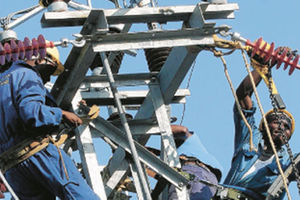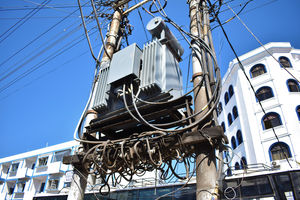
Transformers and their parts are not made locally, but are imported. Local companies only assemble the imported parts.
The National Assembly may have been duped into enacting a law that imposed 25 percent tax on imported fully assembled electric transformers and its parts so as to protect the local manufacturers after it emerged that no transformers or parts are made locally.
Kenya Power told a parliamentary committee that the transformers or their parts are not manufactured locally, and revealed that it was not consulted before the imposition of the tax.
The power distributor told the Finance and National Planning Committee of the National Assembly that the tax, which has been in force for almost four months, has had serious implications including increasing the cost of electricity and power connectivity, and hampering the supply of transformers in the country.
The revelations raises questions on how the National Treasury generated the proposal without input from the power distributor, the consumer of the transformers.
This realisation has prompted the government to rush through the Excise Duty (Amendment) Bill 2025, which now seeks to remedy a situation that KPLC says has seen the cost of electricity and its connectivity skyrocket.
Members of the Finance and National Planning Committee at a stakeholder input meeting on the Bill said that what was thought to be local manufacturing of electrical transformers was actually assembly.
“We have been trying to protect the local manufacturers but on this one we did not do proper consultations,” Kitui Rural MP David Mwalika, who chaired the committee session during the stakeholder input on the Bill, said of the imposition of the tax.
The excise duty was imposed in the government-sponsored Tax Laws (Amendment) Bill which was passed last year and became operational on December 27, 2025 with the intention to support the local production industry.
However, the Finance Committee chaired by Molo MP Kimani Kuria was told that the firms indicated as local manufacturers “were actually assemblers and not manufacturers,” meaning that the law would not achieve the intended objective as imported transformer parts were also subjected to 25 percent excise duty.
This resulted in an increase in prices of transformers across the board.
“The amendment has had a negative effect on the manufacture and supply of transformers by increasing the cost of importing parts,” says the Excise Duty (Amendment) Bill 2025, signed by the leader of majority in the National Assembly, Kimani Ichung’wah.
By virtue of his leader of majority position, Mr Ichung’wah signs government Bills.
“It is intended that this amendment will reduce the cost of electricity and enhance power connectivity through additional manufacture and supply of transformers to the Kenya Power and Lighting Company (KPLC),” the Bill adds.
Mr Barnabas Boit, the CEO Pan Africa Transformers and Switchgears Limited, confirmed to the committee that they source from the foreign market the parts they use to assemble the transformers that they supply to Kenya Power.
“We import all the parts that we use to assemble the transformers.”
Kenya Power presented documents to Parliament show that the increase in excise duty has led to the cost of connection of electricity, increase in electricity tariffs and a reduction in the numbers of transformers available for use.
The records further indicate that Kenya Power procures an average of 4,000 transformers every year to replace old and faulty units as well as connect new customers.
With an annual average replacement of 4 percent of the 82,000 transformers, 3,200 transformers are required to be replaced every year to “address cases of damages, vandalism, worn-out and faultiness”.
A further 1,000 transformers are required for network expansion and new customer connections.
The lack of the required oversight on the MPs saw them question Kenya Power on whether it was consulted and what its position was before the imposition of the duty on the imported transformers.
“Was there stakeholder engagement from you (KPLC) before the Bill was brought to this House?” Kesses MP Julius Ruto posed with Mr Mwalika also demanding to know where the power distributor has been since the law was enacted.
“We were not consulted before the Bill was enacted, at least at my level and I am not aware if the KPLC Managing Director was involved,” said Mr Stephen Vikiru, KPLC’s General Manager, Finance.
However, Mr Vikiru did not disclose the financial cost implication Kenya Power has suffered since the imposition of the excise duty.
While the Institute of Certified Public Accountants of Kenya (ICPAK) proposes provision of incentives to deter importation of the transformers “in order to grow the capacity of local manufacturers” the Westminister Consulting, is of a different opinion.
“Kenya does not manufacture electric transformers,” Mr George Mbatai, the Westminister Consulting lead consultant, told the committee. As such, says Mr Mbatai, imposing a tax on imported transformers does not protect or promote local industry.
“Instead, it imposes an additional cost burden on consumers and businesses that rely on electricity for their operations,” he adds.
The consulting firm noted that taxing transformers increases the overall cost of electricity distribution, “which will negatively impact industries, small businesses and households.
“Higher electricity costs will slow down economic development, discourage investment and place undue financial strain on Kenyan citizens.”










